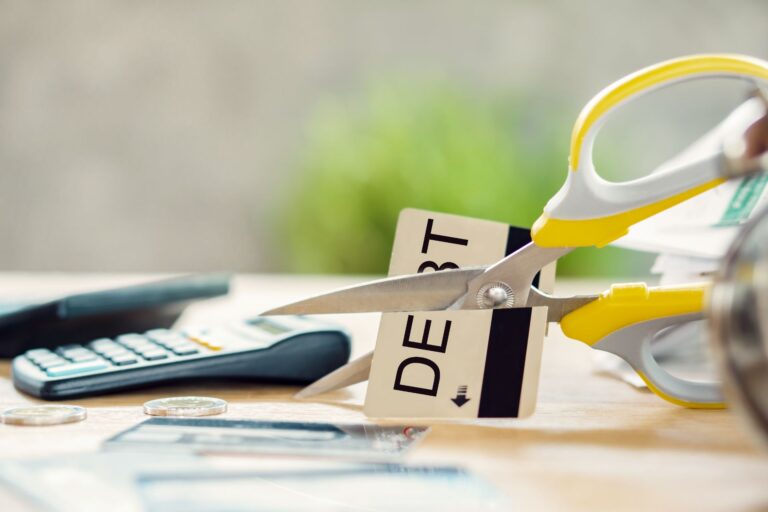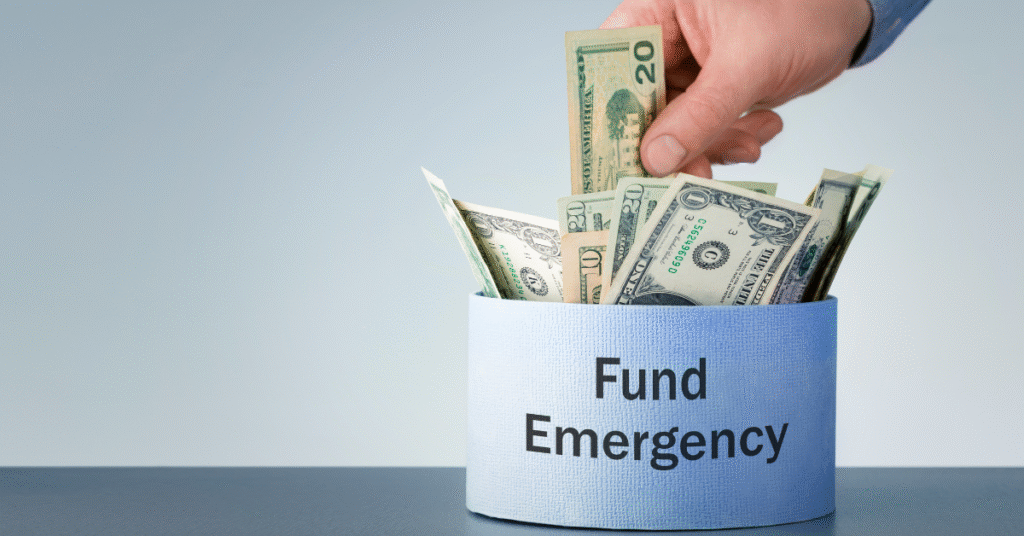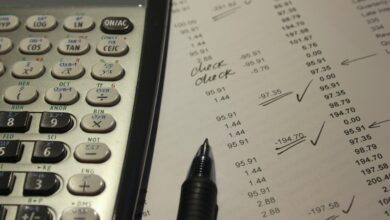12 Good Financial Habits To Adopt In 2025

Your bank account right now? It’s a direct result of your money habits, good or bad. And if you’re reading this, chances are you’re ready to stop living paycheck to paycheck and actually build something real.
Here’s the thing: wealth doesn’t just happen. I’ve spent years studying finance (yeah, I have both a degree and a master’s in this stuff), and I can tell you that the people who retire comfortably aren’t the ones making six figures. They’re the ones who mastered their money habits early.
2026 is your year to flip the script. No more “I’ll start saving next month” or “I don’t make enough to invest.” Those excuses? They’re keeping you broke. Let me show you the 12 financial habits that’ll actually change your life, not someday, but starting today.
What Are Some Good Financial Habits To Adopt?
Real talk: if you only focus on three things, make them budgeting, investing, and retirement planning. Master these three, and you’re already ahead of 80% of people out there. Everything else? It’s just fine-tuning.
But why stop at three when you can build a complete financial fortress? Let’s break down all 12 habits that’ll transform how you handle money.
Why Having Good Financial Habits Is Important
Before we jump into the how, let’s talk about the why. Because honestly, if you don’t understand what’s at stake, you won’t stick with these habits when things get tough.
Extra Money To Save
Ever notice how some people always seem to have cash for emergencies while you’re scraping by? It’s not luck, and it’s probably not their salary either. Good financial habits create breathing room in your budget, actual money you can sock away without feeling like you’re starving yourself.
I’ve seen people making $40,000 save more than folks pulling in $100,000. The difference? Discipline and systems. When you build solid money habits, saving becomes automatic. You’re not white-knuckling through the month hoping there’s something left over; you’re intentionally directing your cash where it needs to go.
Minimal Debt Risk
Debt is like quicksand. One wrong move and suddenly you’re in up to your neck, wondering how the hell you got there. Most people don’t plan to go into debt; they just drift into it with bad habits.
Skip a budget here, overspend there, ignore that credit card balance… and boom. You’re drowning. But when you adopt smart financial habits, debt becomes nearly impossible. You’re tracking every dollar, planning purchases, and living within your means. The debt trap? You’ll walk right past it.
Successful Retirement
Want to know the scariest statistic in personal finance? Most Americans have less than $10,000 saved for retirement. That’s not a typo. People are planning to retire on less than a used car’s worth of savings.
You don’t want to be 65, unable to work, and still stressing about rent. Trust me on this. The people who retire successfully started building good habits in their 20s and 30s. They weren’t earning millions; they were just consistent. That’s the real secret.
Financial Literacy
Here’s something they don’t teach in school: financial literacy isn’t about memorising formulas. It’s about developing instincts for smart money decisions. When you practice good financial habits daily, you’re essentially getting a PhD in managing your own life.
You start seeing through marketing BS. And you recognise terrible financial advice when you hear it. You understand the real cost of that “small” purchase. This education? It’s priceless, and it only comes through practice.
12 Good Financial Habits To Adopt In 2026
Alright, enough philosophy. Let’s get into the actual habits that’ll transform your finances this year.
1. Budgeting Your Money

I know, I know, budgets sound boring AF. But hear me out. A budget isn’t a punishment or some restrictive diet for your wallet. It’s a permission slip to spend money guilt-free because you know where everything’s going.
Think of budgeting like GPS for your money. Without it, you’re just driving around hoping you end up somewhere good. With it, you know exactly how to reach your destination.
Here’s what a solid budget does for you:
- Tracks every dollar coming in and going out
- Identifies stupid expenses you didn’t realise were bleeding you dry (hello, forgotten subscriptions)
- Shows you exactly how much you can spend on fun stuff without wrecking your future
- Gives you control instead of letting money control you
Start with the basics: fixed expenses (rent, car payment, insurance) and variable expenses (groceries, entertainment, utilities). Apps like Mint or YNAB make this ridiculously easy. You literally just connect your accounts and watch where your money goes.
The first time I built a real budget, I found $400 a month I was wasting. Four. Hundred. Dollars. That’s $4,800 a year I could’ve been investing. Don’t make my mistake.
2. Setting Financial Goals
Ever tried running without knowing where the finish line is? That’s what managing money without goals feels like. You’re busy, you’re moving, but you’re not actually getting anywhere.
Financial goals give your money purpose. They turn “I should probably save something” into “I’m saving $500 monthly for a house down payment.” Suddenly, that new iPhone doesn’t look so appealing when it’s stealing from your dream home.
Your goals should cover:
- Short-term (this year): Emergency fund, credit card payoff, vacation savings
- Medium-term (1-5 years): Down payment, car purchase, student loan elimination
- Long-term (5+ years): Retirement, kids’ college fund, financial independence
Write these down. Make them specific. “Save money” is trash. “Save $10,000 for emergencies by December” is a goal you can actually work toward.
FYI, I keep my goals on my phone’s lock screen. Every time I unlock it, I see what I’m working for. Makes it way harder to justify impulse purchases when your goal is staring you in the face.
3. Paying Your Bills Quickly
Late fees are the dumbest way to lose money. Period. You’re literally paying extra for… nothing. No product, no service, just punishment for forgetting.
Here’s the reality: your brain is full. You’ve got work deadlines, relationship stuff, health issues, and a million other things competing for attention. Expecting yourself to remember every bill due date is setting yourself up for failure.
Solution? Automation.
Most banks and service providers let you set up automatic payments. Your phone bill, Netflix, student loans, and credit cards, put them all on autopilot. The money leaves your account on time, every time, without you lifting a finger.
I automated my bills five years ago, and I’ve saved hundreds in late fees. Plus, my credit score jumped because I never miss a payment. It’s probably the easiest financial win you can grab.
4. Avoiding Debt

Let me be crystal clear: debt isn’t always bad. A mortgage that’s building equity? That’s strategic. Student loans that doubled your earning potential? Smart investment. But consumer debt, that credit card balance you’re carrying for stuff you barely remember buying? That’s financial cancer.
The problem isn’t having debt. It’s having a lifestyle that creates debt. If you’re constantly swiping credit cards for things you can’t afford, that’s not a money problem; it’s a habit problem.
Here’s how to break the debt cycle:
- Stop using credit cards for everyday purchases until you’ve paid them off
- Build a budget that accounts for irregular expenses (car repairs, medical bills)
- Create an emergency fund so unexpected costs don’t become debt
- Only borrow money for things that appreciate or generate income
Debt keeps you trapped. Every dollar you pay in interest is a dollar that’s not growing your wealth. It’s working against you instead of for you.
If you’re currently in debt, check out strategies for paying it off faster at sites like NerdWallet’s debt payoff calculator. Small payments add up faster than you think.
5. Planning For Retirement
“I’m too young to worry about retirement.”
Cool story. You’re also too young to waste the most powerful wealth-building tool you have: time.
When you’re 25 and invest $200 monthly until retirement, you’ll have more money than someone who starts at 35 and invests $500 monthly. That’s compound interest doing its thing, and it’s basically magic.
Your retirement planning checklist:
- Sign up for your employer’s 401(k) and contribute at least enough to get the full match (that’s free money, people)
- Open a Roth IRA if you’re eligible; your future self will thank you when those withdrawals are tax-free
- Aim to save 15-20% of your income for retirement
- Don’t touch this money. Seriously. It’s not for emergencies or impulse purchases.
I started contributing to my 401(k) at 23, and even though I wasn’t making much, those early contributions are now worth more than everything I contributed in my 30s. Time matters more than amount.
6. Paying Yourself First
This habit is so simple it feels like cheating, but it works like crazy. Instead of saving whatever’s left at the end of the month (which is usually nothing), you save first and live on the rest.
As soon as your paycheck hits your account, a chunk automatically transfers to savings. Not tomorrow, not when you remember, immediately. You adjust your lifestyle to the money that remains.
Here’s how to implement this:
- Set up automatic transfers for payday (10-20% of your income is a solid target)
- Split it between different goals: emergency fund, retirement, specific savings goals
- Treat this money as untouchable as your rent payment
- Gradually increase the percentage as you get raises or cut expenses
The psychology here is brilliant. You can’t spend what you don’t see. Your checking account balance becomes your real spending money, and savings happen without willpower.
7. Keeping Money For Emergencies

Life doesn’t care about your budget. Your car will break down, your roof will leak, and you’ll need an emergency root canal. It’s not if, it’s when.
An emergency fund is your financial airbag. Without it, every unexpected expense becomes a crisis that pushes you into debt. With it, emergencies are just… annoying. Manageable, but annoying.
Your emergency fund should:
- Cover 3-6 months of essential expenses (not your current spending, just the bare minimum)
- Live in a high-yield savings account, not your checking account (check out Marcus by Goldman Sachs or Ally Bank for decent interest rates)
- Be accessible but not too accessible; you want to be able to grab it in emergencies, but not for “emergencies” like a sale at Target.
- Get built gradually, start with $1,000, then work toward one month’s expenses, then three.
Real talk: I didn’t have an emergency fund until I was 28. Then my car died, and I had to put $2,500 on a credit card. Spent the next year paying it off with interest. Now I keep six months’ expenses saved, and I sleep way better.
8. Living Frugally
Before you roll your eyes, frugal doesn’t mean cheap. It means you spend intentionally on what matters and ruthlessly cut what doesn’t.
Some people spend $200 monthly on restaurant meals they barely enjoy, but won’t buy the $50 kitchen gadget that would make cooking easier. That’s not frugal, that’s just random. Frugality is about maximising value per dollar spent.
Frugal living strategies that actually work:
- Cook at home (you’ll save $300+ monthly and probably eat healthier)
- Buy quality items that last instead of cheap stuff you’ll replace constantly.
- Cut subscriptions you rarely use (when’s the last time you watched Hulu?)
- Shop with a list and stick to it; impulse purchases kill budgets
- Buy used when it makes sense (cars, furniture, tools)
IMO, the best part about living frugally is that it’s not about deprivation, it’s about consciousness. You’re not saying “I can’t afford this.” You’re saying, “I’m choosing to spend my money differently.”
9. Automating Your Finances
Your brain has enough to do. Don’t make it remember 15 different due dates and transfer amounts. Automate everything you can and free up that mental energy for things that actually matter.
Automation removes willpower from the equation. You’re not relying on future-you to make smart decisions when present-you is tired and wants to skip that savings transfer. The system handles it automatically.
What to automate:
- Bill payments (every single one)
- Savings transfers (to multiple accounts if needed)
- Investment contributions (401k, IRA, brokerage accounts)
- Debt payments (always more than the minimum)
Services like Personal Capital can help you see all your automated finances in one place. Set it up once, check in monthly to make sure everything’s running smoothly, and let the system work for you.
10. Saving For Big Purchases
Want to destroy your finances? Buy expensive stuff on impulse. Want to protect them? Plan every major purchase like a military operation.
Big purchases (anything over $500) should never surprise you. They should be researched, budgeted for, and saved for in advance. This does two things: gives you time to decide if you really want it, and prevents the purchase from wrecking your monthly budget.
Your big purchase strategy:
- Define what counts as “big” for your budget (maybe it’s $300, maybe it’s $1,000)
- Create a separate savings account for these purchases
- Research thoroughly before buying, read reviews, compare prices, and look for deals
- Save the full amount before buying (no financing unless necessary)
- Wait 30 days after saving before purchasing to make sure you still want it
I have a “stuff fund” that gets $150 monthly. When I want something expensive, it comes from this account. If there’s not enough, I wait. This habit has saved me from so many regrettable purchases.
11. Paying Off Credit Card Debts
Credit card debt is expensive. Like, really expensive. Average interest rates are 20%+. That means if you’re carrying a $5,000 balance and making minimum payments, you’ll pay thousands in interest alone.
The only good credit card balance is zero. Every. Single. Month. If you can’t pay it off, you can’t afford it, even if technically you could afford the minimum payment.
Getting out of credit card debt:
- Stop adding to the balance, put the cards away until they’re paid off
- Use the avalanche method: pay minimums on everything except the highest-interest card, throw every extra dollar at that one.
- Or use the snowball method: pay off the smallest balance first for psychological wins.
- Consider a balance transfer to a 0% APR card if you have good credit (but only if you’ll pay it off before the promotional period ends)
- Track your progress, watching that balance shrink is motivating
Once you’re debt-free, use credit cards strategically: charge things you were going to buy anyway, pay the statement balance in full each month, and collect rewards. Never carry a balance again.
12. Investing Your Money
This is where you stop working for money and start having money work for you. And no, you don’t need to be rich to start. You need to be smart and consistent.
Keeping all your money in savings accounts means inflation is slowly eating it alive. What costs $100 today will cost $103+ next year. Your money loses purchasing power just sitting there. Investing is how you fight back.
Investing basics for beginners:
- Start with low-cost index funds through Vanguard or Fidelity
- Max out tax-advantaged accounts first (401k, IRA) before taxable brokerage accounts
- Invest consistently, set up automatic monthly contributions
- Don’t panic when the market drops, stay the course and keep investing
- Diversify across different asset classes (stocks, bonds, real estate)
The stock market averages 10% annual returns over long periods. Your savings account? Maybe 4% if you’re lucky. That difference compounds into hundreds of thousands of dollars over decades.
I started investing with just $50 a month when I was broke. Now it’s grown substantially, and those automatic contributions have built real wealth. The best time to start was ten years ago. The second-best time is today.
Final Thoughts
Look, none of this is complicated. These habits aren’t secret; they’re simple, proven, and available to anyone willing to commit. The challenge isn’t knowing what to do; it’s doing it consistently, even when it’s inconvenient or unpopular.
The good news? It gets easier. With time, smart money habits stop feeling like a sacrifice and start feeling natural. You’ll wake up one day, realising you’ve become that person who’s financially confident and in control.
So make 2026 your turning point. Start small, start today, but start. Your future self will thank you for the discipline you build now. Which habit are you tackling first?








